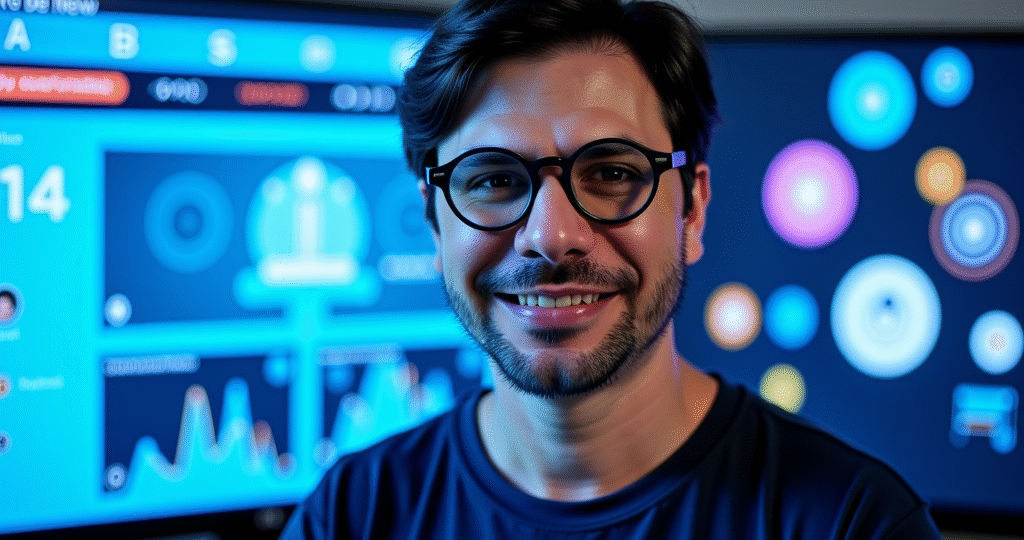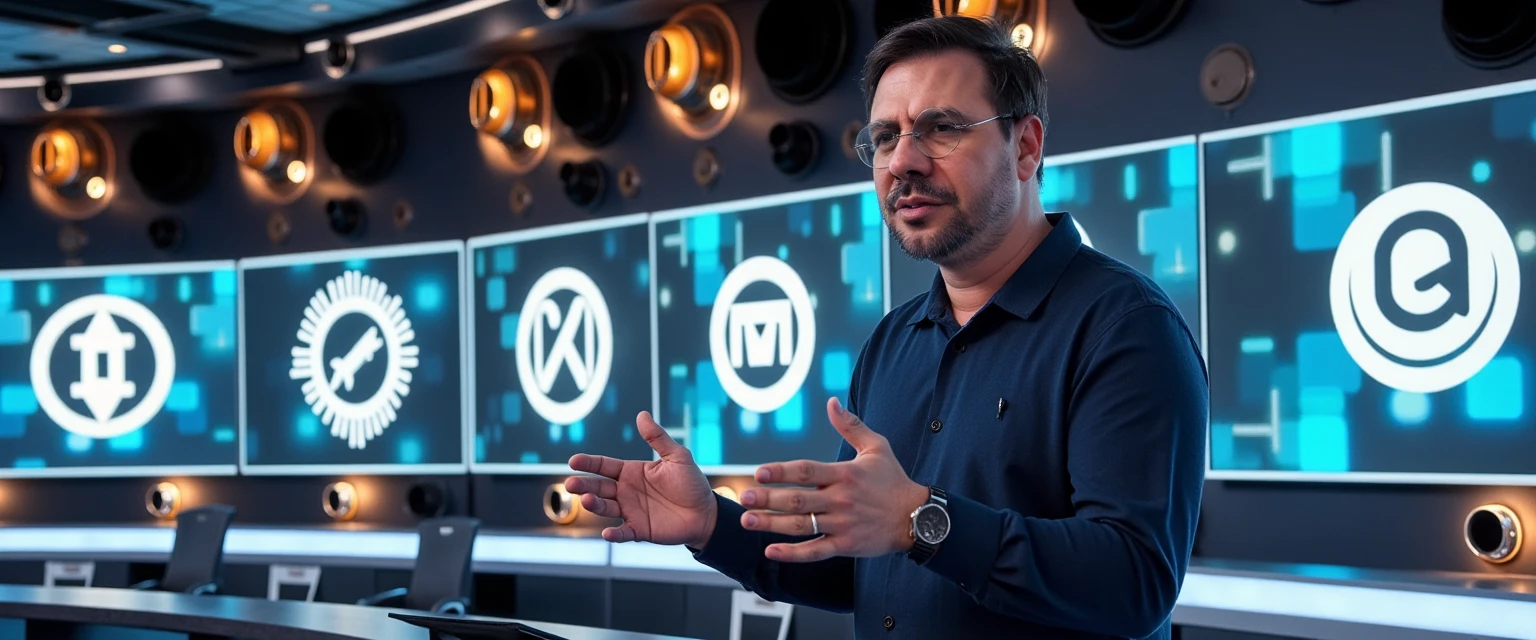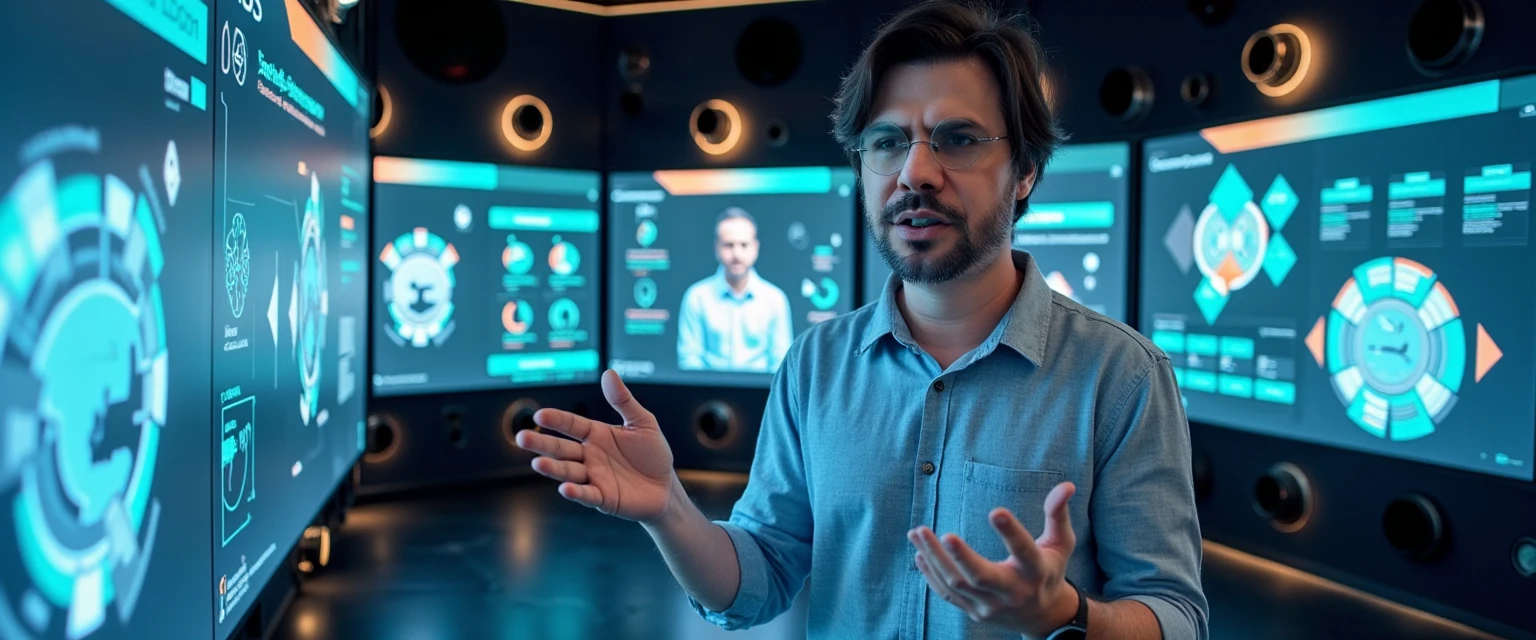AI Radar: From Music to Education — How Startups and Governments Are Shaping the Future of Technology in Brazil
May 16, 2025 | by Matos AI

We are living a fascinating moment in the evolution of artificial intelligence in Brazil. Over the past 24 hours, I have observed a series of initiatives that show how different actors are taking on prominent roles in this digital transformation: from streaming platforms that are redefining the rules for the use of content in AI training, to state governments that are proposing specific legislation for the technology.
This scenario leads me to reflect on a crucial point: we are facing a technological race where democratizing access to AI will be decisive for our economic future. That is what I want to talk about today.
SoundCloud and Copyright in the Age of AI: A Paradigm Shift
One of the most impactful news in the last few hours was the update of SoundCloud's terms of service to allow content uploaded to the platform to be used to train AI systems. This shift signals a new chapter in the relationship between creators, platforms and technology..
Join my WhatsApp groups! Daily updates with the most relevant news in the AI world and a vibrant community!
- AI for Business: focused on business and strategy.
- AI Builders: with a more technical and hands-on approach.
According to the Brazilian Post Office, this change, although not yet implemented, suggests preparation for a future where AI will play a more active role in music creation and distribution. The decision raises a series of questions about intellectual property that I have been following for years in the innovation ecosystem.
When we look at this movement, we need to understand that it goes far beyond a simple change in terms of use. What we are witnessing is a complete realignment of the creative industry in the face of the possibilities of AI. The questions that arise are complex:
- If a song is created by AI trained on existing works, who owns the copyright?
- How can we guarantee fair remuneration to the original artists who “fed” these systems?
- What is the cultural and economic impact of this new form of music production?
In my experience working with technology startups, I have seen that companies that can navigate this complex territory of intellectual property and innovation are the ones best positioned to lead their markets in the future.
Goiás sets an example with its own legislation for AI
While we are discussing federal regulation for AI in Brazil, Goiás has decided to take the lead with an innovative proposal. Governor Ronaldo Caiado sent a bill to the Legislative Assembly that establishes the State Policy for Promoting Innovation in Artificial Intelligence.
According to IT INSIDE Online, the project includes AI applications in strategic sectors such as agribusiness, health, education and Industry 4.0, in addition to making an important choice to promote open source artificial intelligence models.
What draws my attention to this initiative is the scope of the proposal, which includes:
- Inclusion of AI in the state school curriculum
- Partnerships with Sistema S for training
- Creation of a legal framework to attract data centers
- Encouraging the use of renewable energy for technological infrastructure
This multifaceted approach is exactly what I advocate when I talk about developing innovation ecosystems. It is not just about technology, but a set of actions that involve education, infrastructure, legal framework and incentives.
The Goiás initiative represents a case that other Brazilian states should observe closely. In my experience working with public policies for innovation, I realize that states that anticipate in creating environments favorable to the adoption of new technologies tend to reap significant results in attracting investments and economic development..
Microsoft and Google democratize access to AI education
One of the biggest bottlenecks for the mass adoption of AI in Brazil continues to be training. That is why the free educational initiatives announced by Microsoft and Google deserve to be highlighted.
Microsoft Brazil has launched the free course 'FluêncIA' specifically aimed at small and medium-sized businesses, as reported by Earth. The course, available on YouTube in ten episodes, covers everything from basic concepts to creating effective prompts and practical use of technology.
Google, according to YOU INC., made 1,296 free courses available on its Cloud Skills Boost platform, with options also in Portuguese, democratizing access to technology education.
What these initiatives actually reflect is a race to train talent and create a consumer market for AI solutions. Big techs have understood that they need to expand the knowledge ecosystem to ensure the adoption of their technologies.
I have seen in my work with startups that the ability to absorb and implement AI solutions is already a significant competitive differentiator. Companies that can quickly train their teams to use these tools are seeing productivity and innovation gains that can reach 30% in some sectors..
AI Infrastructure: Patria's Billion-Dollar Investment
Infrastructure is the foundation on which the entire AI revolution rests, and Brazil is taking important steps in this direction. Pátria Investimentos announced a US$1 billion investment to develop AI infrastructure in Latin America through the Omnia platform.
According to the Economic Value, the initiative aims to meet the growing demand for artificial intelligence, cloud computing and high-performance applications in the region.
This investment is extremely significant for a few reasons:
- Reduces our dependence on foreign infrastructure
- Reduces latency and improves performance of local applications
- Creates an environment conducive to the emergence of AI-intensive startups
- Positions Brazil as a potential regional technology hub
In my journey following the development of innovation ecosystems in Latin America, I have observed that the availability of high-quality local infrastructure is one of the most determining factors for the flourishing of advanced technology companies.
Human replacement: a warning from the Duolingo case
Not everything is rosy in the advancement of AI. The case of Duolingo, which faced problems when replacing human professionals with automated systems, brings an important counterpoint to technological enthusiasm.
As reported by Fast Company Brazil, language learning company and fintech Klarna are examples of how an “AI-first” strategy can generate significant criticism and challenges, especially in relation to customer service and experience.
This news reinforces something I have consistently advocated: AI should be seen as a tool to augment human capabilities, not as a replacement for them. Companies that simply seek to cut costs by replacing people with algorithms often find that they lose out on quality of service and connection with their customers.
The transition to AI-powered models needs to be carefully planned, maintaining the human element at touchpoints where empathy, cultural context and understanding of nuances are essential.
Geopolitical tension in the race for AI
One aspect we cannot ignore is the geopolitical dimension of AI. The news that the US Department of Commerce has issued guidance stating that the use of Huawei’s Ascend chips “anywhere in the world” violates US export controls reflects the intensification of the global technology dispute.
According to the InfoMoney, this stance intensifies US efforts to contain Chinese technological advances, at a time of reassessment of diplomatic relations between the powers.
This dispute has profound implications for countries like Brazil, which need to navigate skillfully to:
- Maintain access to the most advanced technologies
- Avoid over-dependence on a single supplier
- Develop own capabilities in strategic areas
- Establish partnerships that respect our technological sovereignty
Brazil has the potential to assume a position as a technological mediator in this polarized scenario, but this will require a clear strategy and consistent investments in its own research and development.
AI and Recruitment: Transforming Talent Selection
The adoption of AI in selection processes is another trend that is becoming more and more established. According to a report by GZH, artificial intelligence is being incorporated into Human Resources activities to conduct selection processes, reflecting a trend where 75% of the world's intellectual workers already use AI at work.
This transformation brings efficiency gains, but it also raises legitimate concerns about algorithmic bias and dehumanizing selection processes. In my experience with technology companies, I have observed that the best results come from hybrid approaches, where:
- AI is used for initial screening and data analysis
- Human professionals make final decisions and conduct meaningful interactions
- Systems are constantly audited to identify and correct biases
Companies that find the right balance between technological efficiency and human sensitivity will have a competitive advantage in attracting the best talent.
Brazilian universities prepare for the AI era
It is encouraging to see higher education institutions like UFMG taking the initiative to develop specific policies for AI. The university launched an online survey to understand how its community uses artificial intelligence in everyday practices, as reported by the university itself. UFMG.
This type of initiative is crucial because:
- Prepares new generations for a market transformed by AI
- Establishes ethical parameters for the use of technology
- Promotes local research and development in AI
- Creates bridges between academia and the productive sector
During my career in technology education, I have always argued that universities need to be at the forefront of these transformations, not just reacting to them. It is encouraging to see Brazilian institutions taking on this proactive role.
The Brazilian AI panorama: challenges and opportunities
Analyzing the news from the last 24 hours, I realize that Brazil is experiencing a moment of acceleration in the adoption of AI, with initiatives coming from different sectors: government, private companies, big techs and academia.
We have made significant progress in:
- Education and training: With free courses being made available by big techs
- Regulatory framework: With state initiatives like the one in Goiás
- Infrastructure: With billion-dollar investments like Pátria's
But we also face considerable challenges:
- Geopolitical tensions: Which may limit our access to advanced technologies
- Ethical issues: As seen in the cases of human replacement and selective processes
- Intellectual property: Evidenced by the change in SoundCloud
Brazil has all the elements to become a regional leader in AI, but this will require coordinated efforts between the government, the private sector, academia and civil society. We need a clear national strategy that goes beyond isolated initiatives.
What's next?
The next steps in the evolution of AI in Brazil will depend largely on how we navigate this transition. I see some possible paths:
- Accelerating AI talent development by leveraging free educational initiatives
- Development of more legislative initiatives, inspired by the example of Goiás
- Expansion of investments in national technological infrastructure
- Creation of multi-stakeholder forums to discuss ethical and regulatory issues
The moment demands leadership, strategic vision and a willingness to face the challenges inherent in any profound technological transformation.
Conclusion: navigating the present, building the future
The news of the last 24 hours shows that the AI revolution is happening now, it is no longer a future scenario. Companies, governments and individuals need to actively position themselves in this new context.
In my journey supporting the development of startups and innovation ecosystems, I have seen that the greatest benefits come to those who view AI not as a threat, but as a powerful tool for expanding human capabilities.
Brazil has a unique opportunity to lead this transformation in Latin America, leveraging our creativity, cultural diversity and adaptability. In my mentoring work with companies and entrepreneurs, I have focused precisely on how to develop these distinctive capabilities in a world increasingly impacted by AI.
May we seize this moment to build a future where technology truly serves human needs and the specificities of our social and economic context.
And you, how are you preparing to navigate this new scenario? Share your experiences in the comments!
✨Did you like it? You can sign up to receive 10K Digital's newsletters in your email, curated by me, with the best content about AI and business.
➡️ Join the 10K Community here
RELATED POSTS
View all



